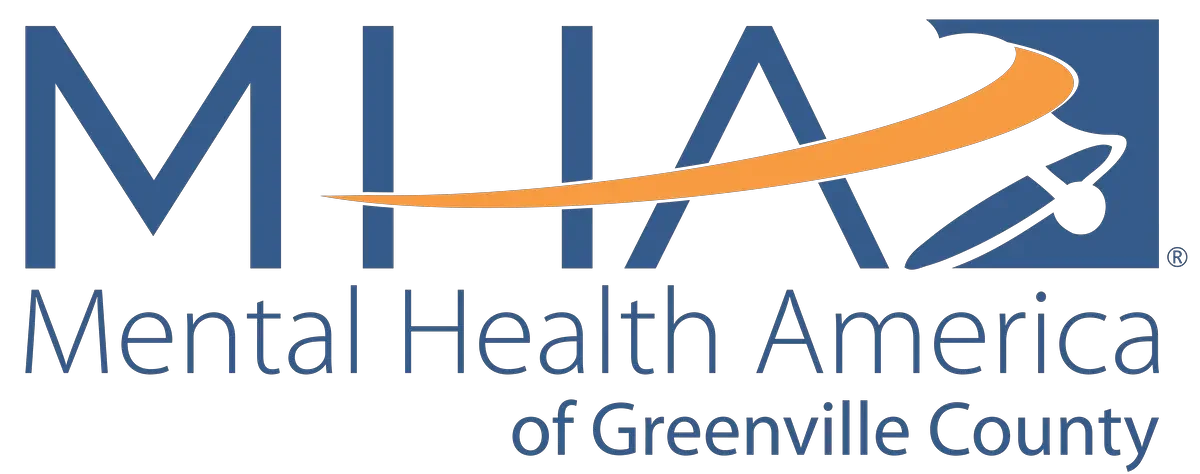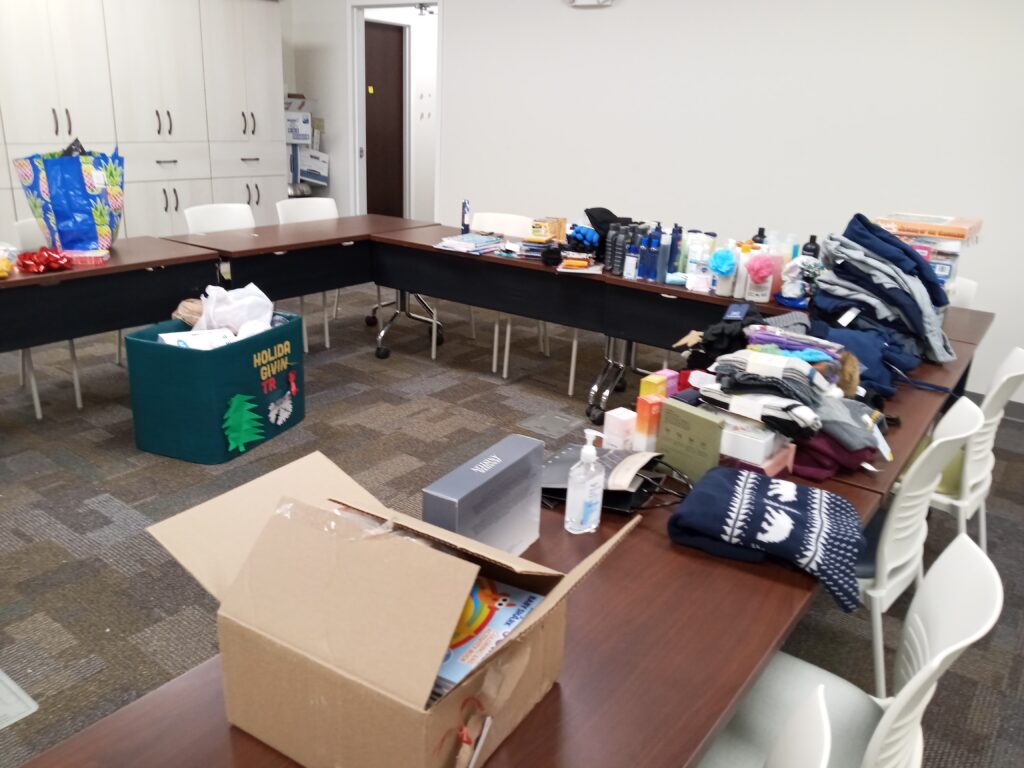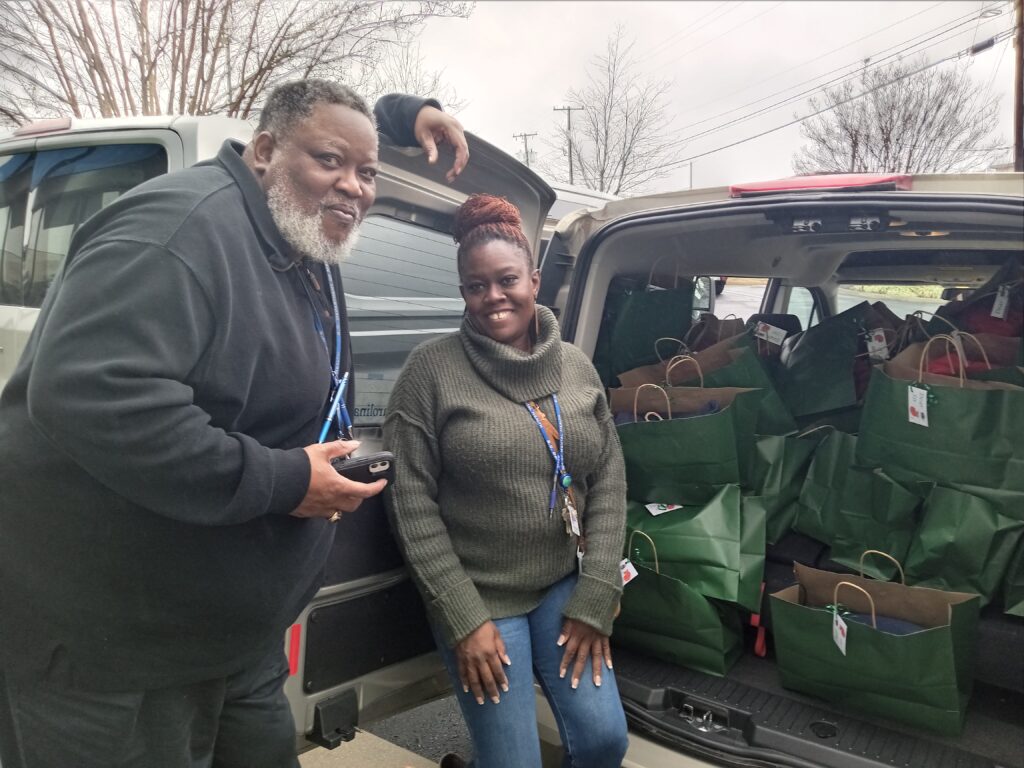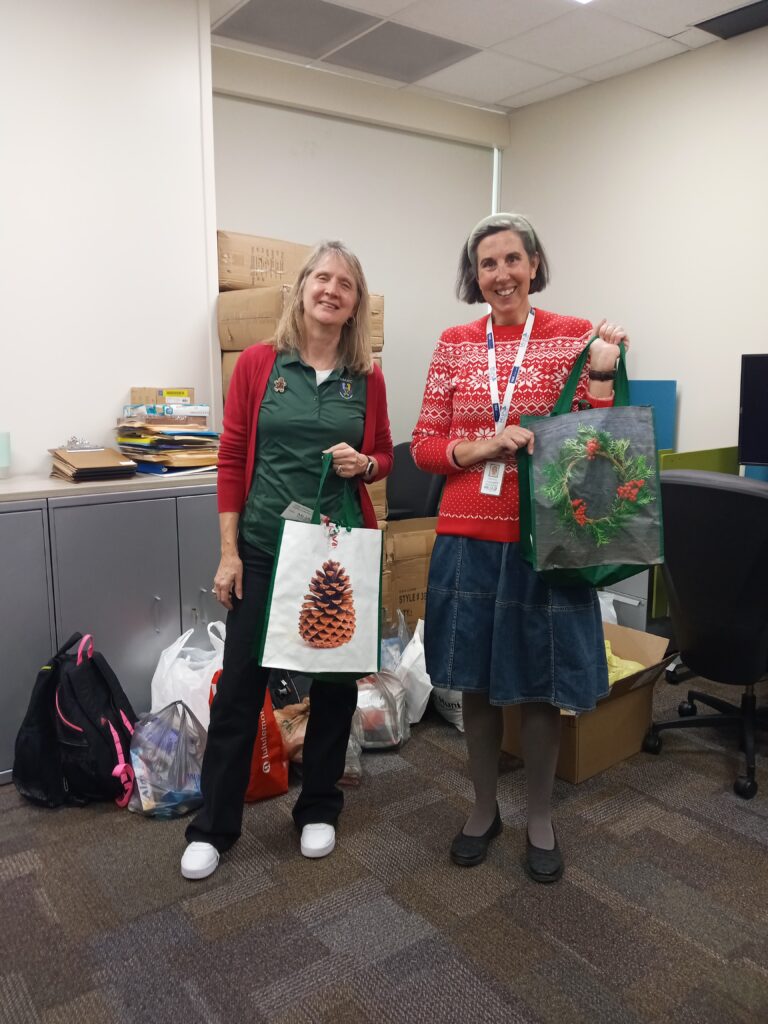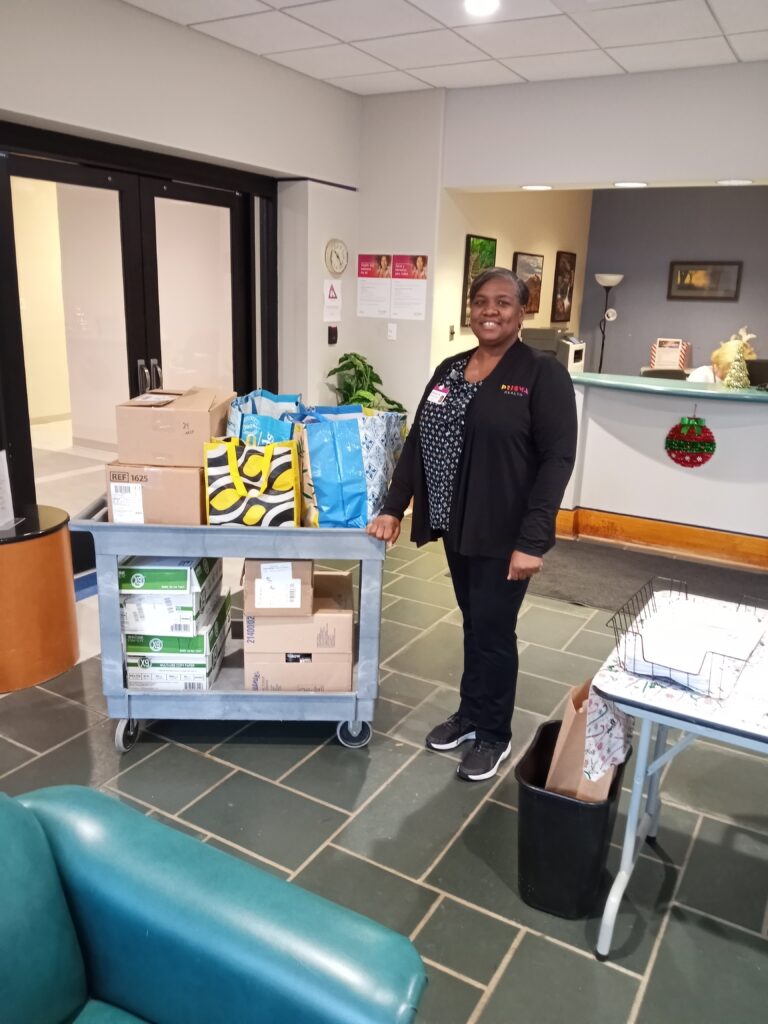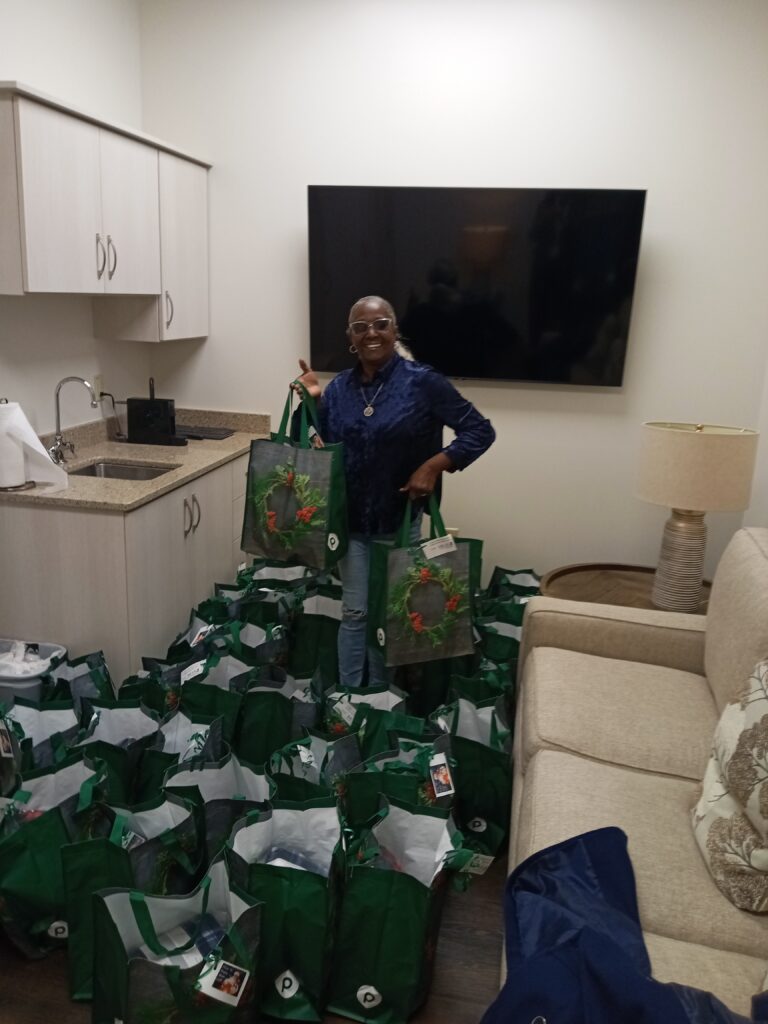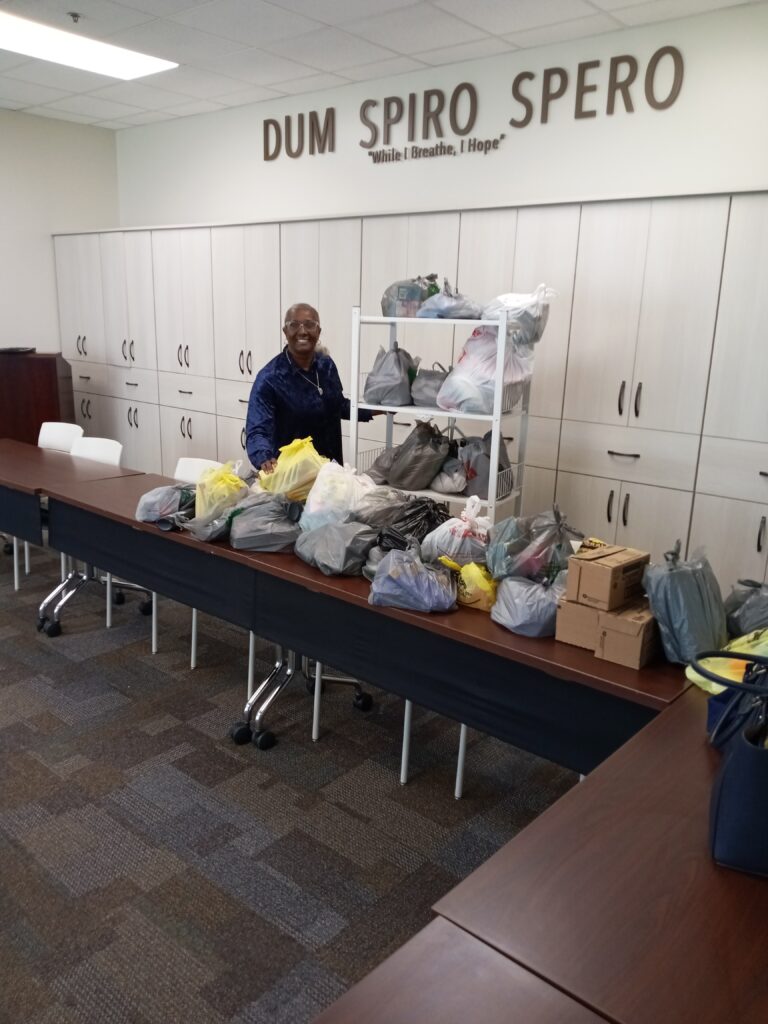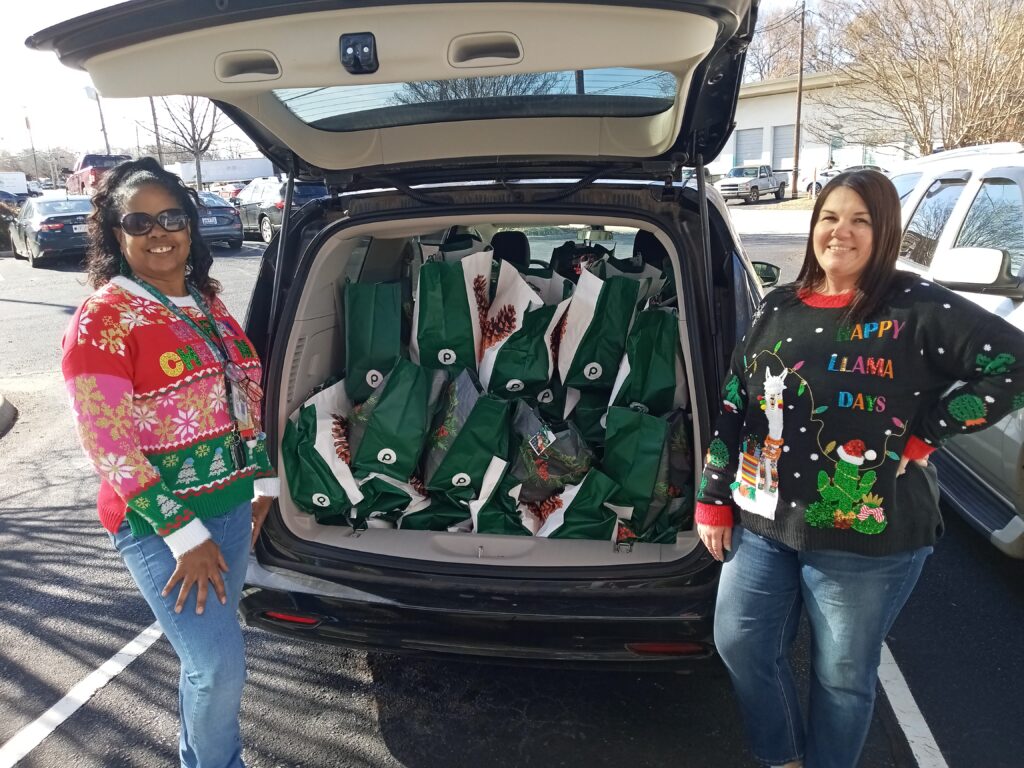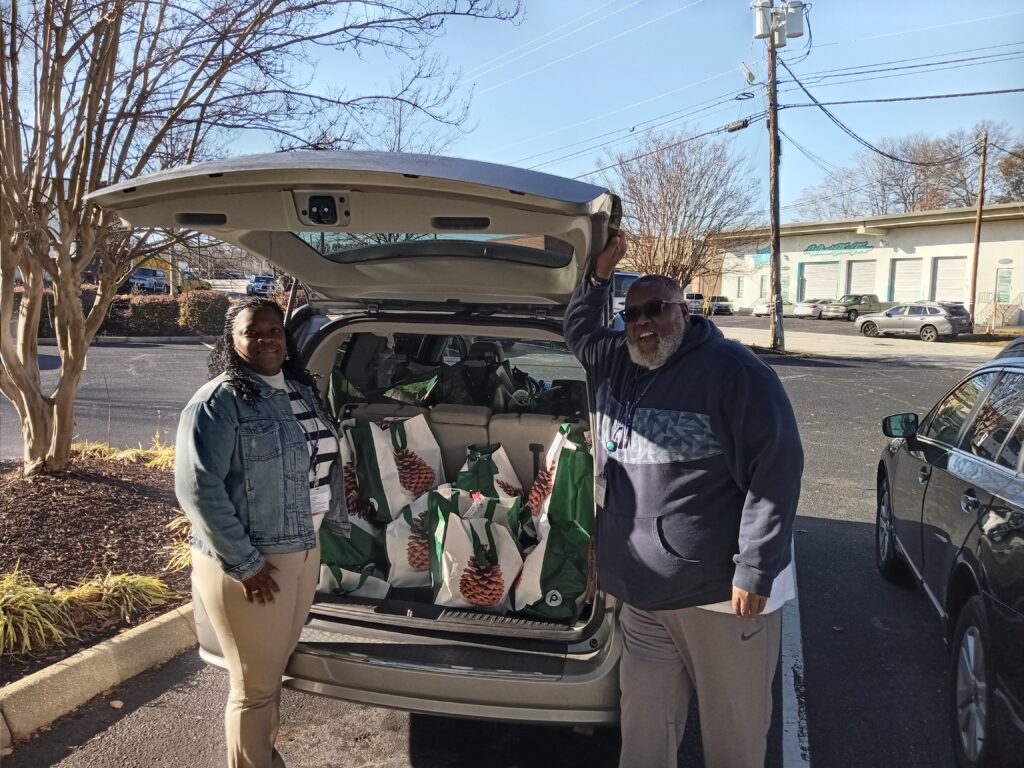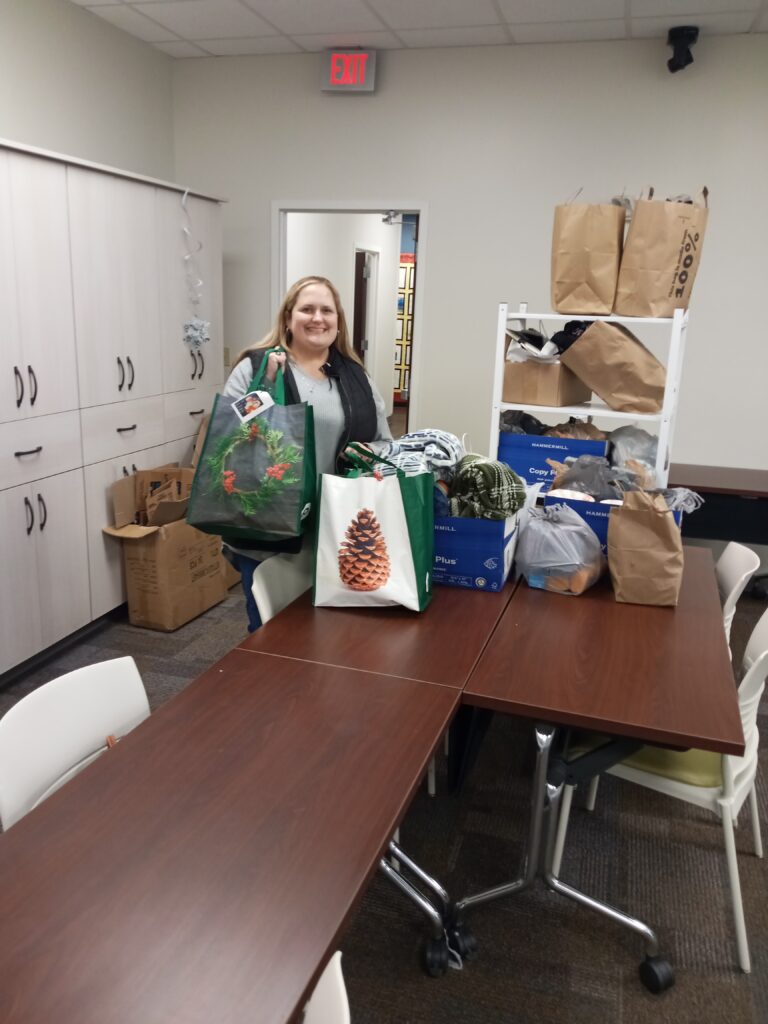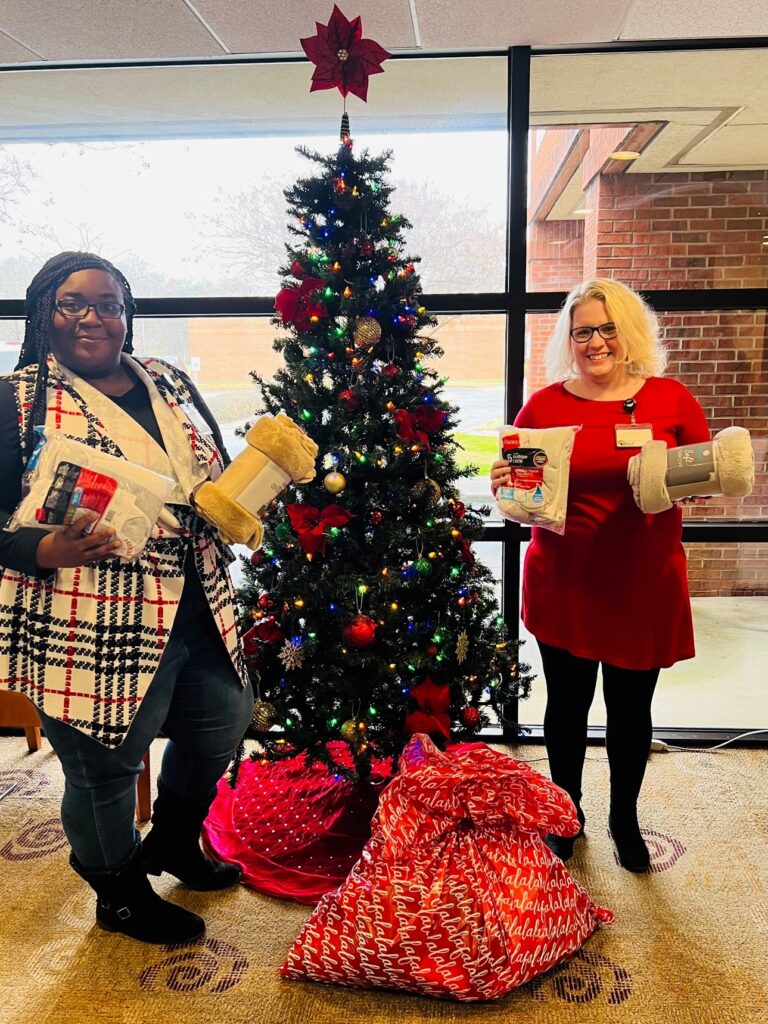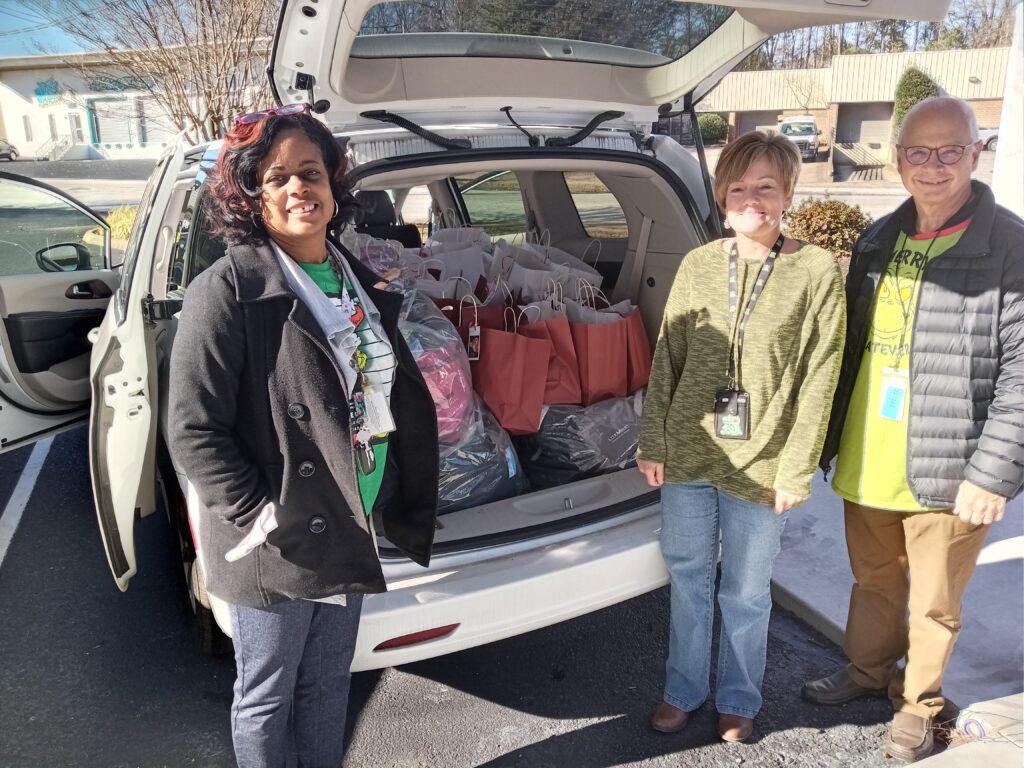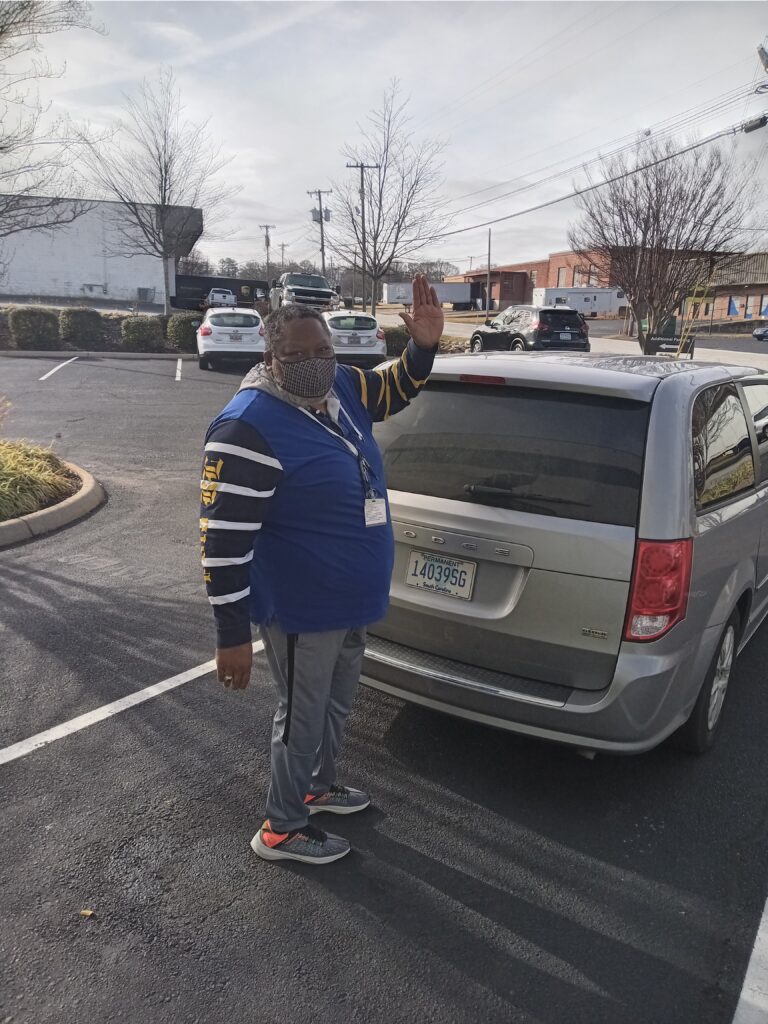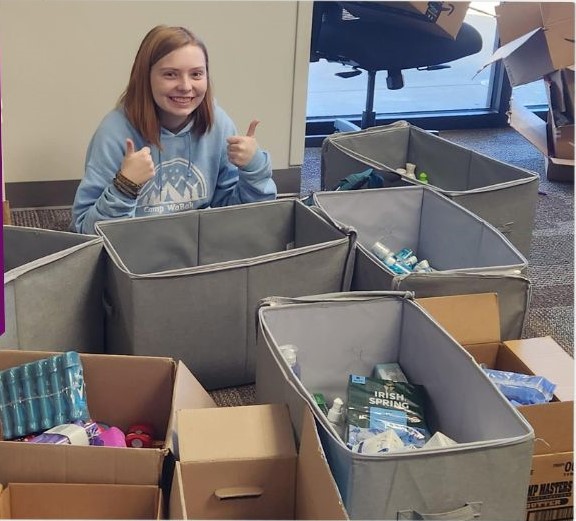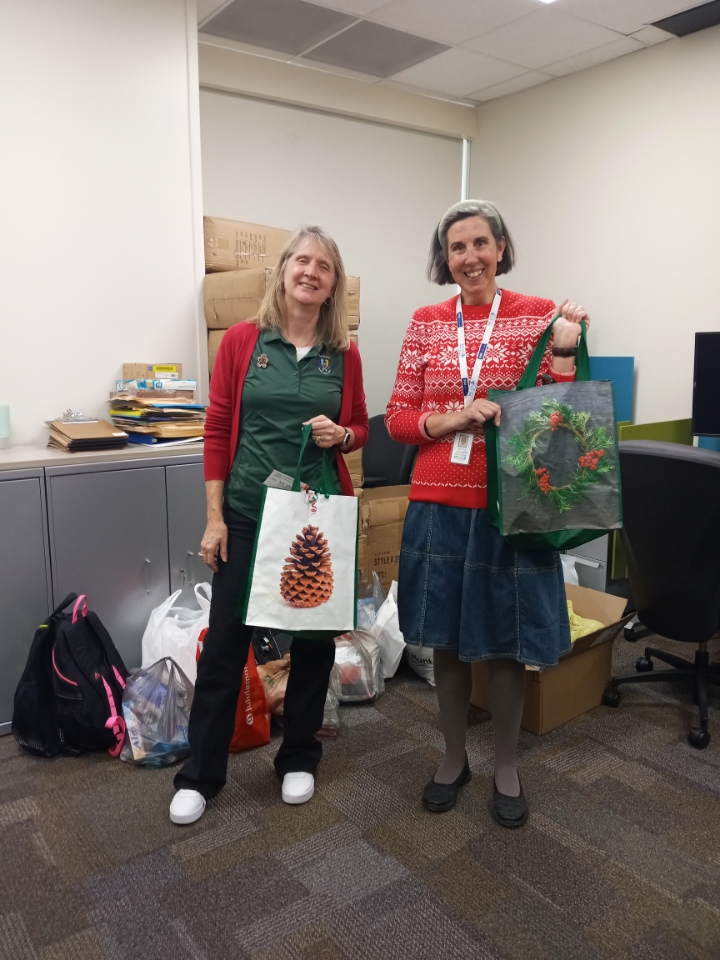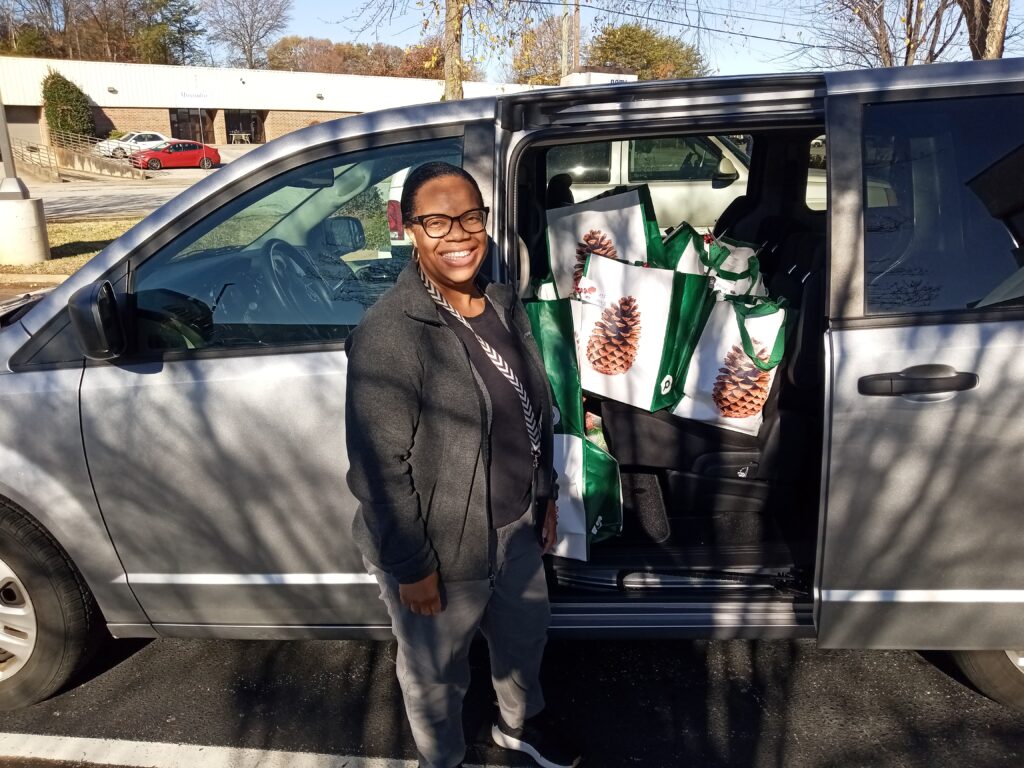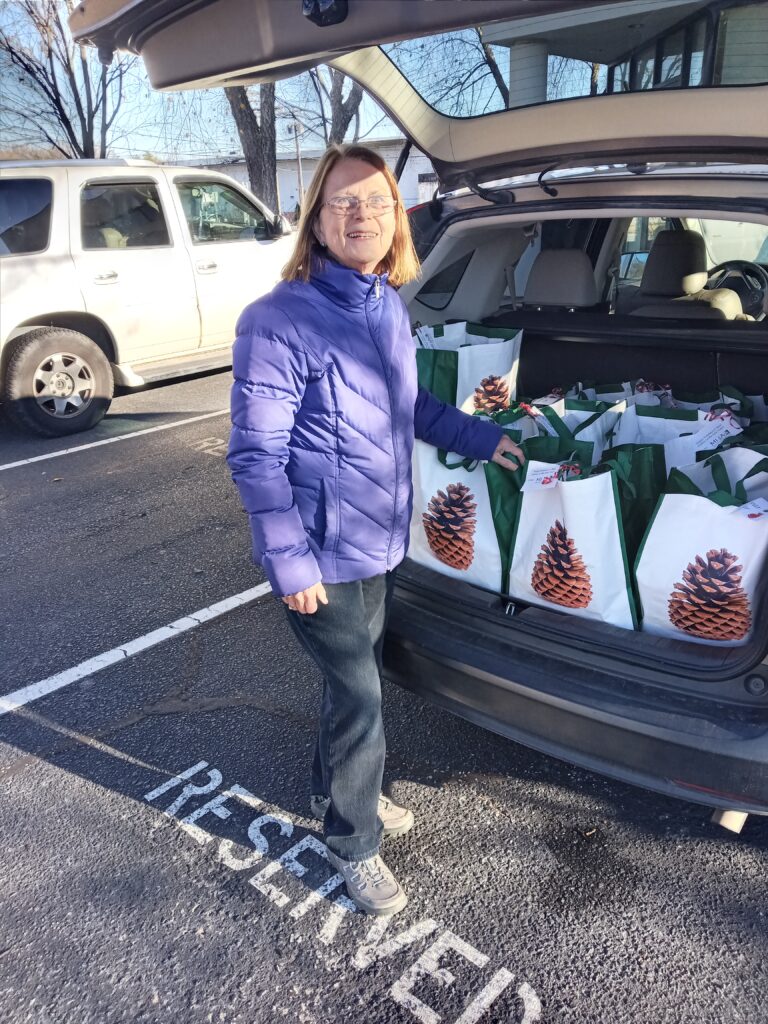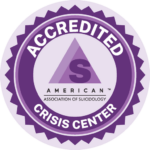Operation Santa Claus
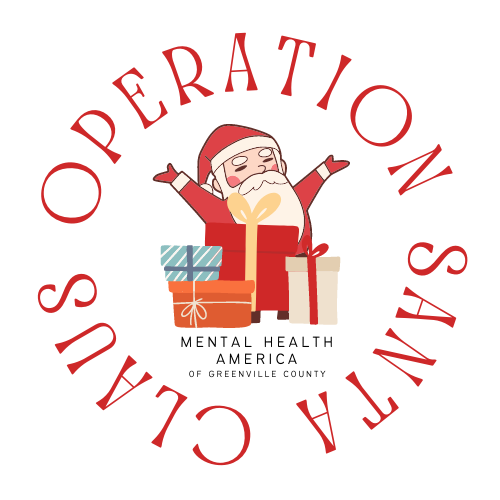
Operation Santa Claus is a holiday program that delivers more than 400 gift bags annually to adults with chronic mental health conditions who are either homeless or living in supported housing. Each year the community comes together to support Operation Santa Claus, which helps raise awareness of mental health while highlighting the joyous spirit that no one is alone or forgotten during the holidays. Each year, we partner with individuals as well as donation hosts, who collect material and monetary donations through their organizations, such as scouting groups, businesses, civic groups, and faith-based organizations.
Our gift bags are full of health and hygiene products and small items of comfort or enjoyment that many may otherwise struggle to afford, especially at the holidays. Items such as soap, deodorant, socks, lotion, shampoo, lip balm, Vaseline, razors, shaving cream, knit caps, large and extra-large sweatshirts, adult coloring books, journals/notepads, pens, blankets, and more are always needed.
Many Ways to Give
You or your organization can help us in one of the following ways:
- Make a cash donation here, designated to Operation Santa Claus.
- Visit our Amazon Wish List to have items sent directly to MHAGC!
- Pick up items from the wish list in your own holiday shopping.
- Distribute our Operation Santa Claus flyer in the community or use it to host a donation drive through your business, civic group, or organization.
All monetary and material items you plan to deliver in person should be brought to the MHAGC administrative offices between 8 AM and 4 PM Monday through Friday. We’re located at 130 Industrial Dr, Suite B in Greenville. Items must be new and unwrapped, and all donations must be received by November 22nd to make it into the bags in time.
If you would like to discuss how you or your organization can support Operation Santa Claus, contact Vanessa Vestergaard at 864-467-3344 Ext. 1104 or Vanessa.Vestergaard@mhagc.org for ways to help.
Housing
Mental Health America of Greenville County (MHAGC) provides housing support services, including administrative support and property management, for two subsidized housing communities and a group home. These communities are designed to provide safe, permanent, affordable housing for individuals disabled with chronic mental illness.
Hillcrest Heights
Hillcrest Heights is located in Simpsonville and has 12 independent apartments. MHAGC has collaborative relationships with community mental health centers for support services. Hillcrest Heights is subsidized through HUD and complies with HUD 811 eligibility requirements for individuals disabled by mental illness. The property is owned by Hillcrest Heights, Inc.
Victor Village
Victor Village is located in Greer and has 10 duplexes for 20 individuals and a community building. MHAGC has collaborative relationships with community mental health centers for support services. Victor Village accepts vouchers provided by Greer Housing Authority and complies with eligibility requirements for individuals disabled by mental illness. Victor Village is owned by Mental Health Association of Greenville County, Housing Corporation.
McKinney House
McKinney House is a group home for individuals with a mental illness that is operated by the SC Department of Mental Health. With space for up to 10 residents at any one time, McKinney House provides these services so that individuals may live long-term in a community setting rather than in hospitalization. McKinney House is owned by Mental Health Association of Greenville County, Housing Corporation.
For information about Hillcrest Heights or Victor Village contact MHAGC at 864-467-3344 at extension 1119 or 2219. For more information about McKinney House, contact SCDMH staff directly at 864-297-5044.
Representative Payee
Since 1993, the Representative Payee Program has collaborated with the South Carolina Department of Mental Health (SCDMH) to help consumers of community mental health services with chronic mental illness manage their disability income. Interested consumers who are actively involved in their treatment programs should contact their DMH caseworkers regarding eligibility. MHAGC works closely with each consumer’s case manager through intake and development of a monthly budget that prioritizes rent, utilities, and medical bills and issues checks to cover food and other basic needs. MHAGC complies with Social Security Administration (SSA) audit guidelines and reporting requirements.
Consumers of the Representative Payee Program regularly receive a record of their income and expenses, which not only builds trust through transparency but also gives consumers opportunities to enhance independent budgeting skills. Through participation in the Representative Payee program, some participants have been able to improve their housing situation and save for emergencies or unexpected needs.
The Representative Payee program promotes positive mental health and independent living. By supporting consumers with chronic mental illness to maintain their housing and mental health treatment plans, the program helps to lower demand on emergency rooms, shelters, soup kitchens, and other services. Support with financial management also allows participants to keep their primary focus on their mental health.
If you would like to learn more please call 864-467-3344 x 1101.
Reassurance Line
Reassurance Line is a dedicated, 24-hour, peer-to-peer telephone service that promotes confidence, safety, and connectedness for people living with chronic mental illness. Eligible participants are referred by Greater Greenville Mental Health Center. The program has helped to bridge the gap between consumers and their mental health professionals and empower participants to maintain their independent living status in the community.
While Reassurance Line users may call in for support, the majority of calls are outbound. These outbound calls support follow through on mental health treatment plans by providing appointment and medication reminders, encourage positive interactions with others, and help consumers stay connected to activities and support systems. Reassurance Line users report that calls reduce feelings of loneliness and isolation and support consistency in taking medications.
Reassurance Line’s peer-to-peer model also promotes confidence and nurture’s growth for employees, who all have lived experience with chronic mental illness. Working for Reassurance Line affords employees a chance to learn the skills needed to thrive in the workforce while supporting the importance of their own treatment plans. Reassurance Line employees have commented that their work promotes their confidence and self worth, builds their listening skills, makes them more attuned to scheduling and time management, and supports relationships that contribute to their own healing.
If you or someone you know may be interested in the program, please talk with your mental health provider or contact the program coordinator at reassurance@mhagc.org or at 864-467-3350.
